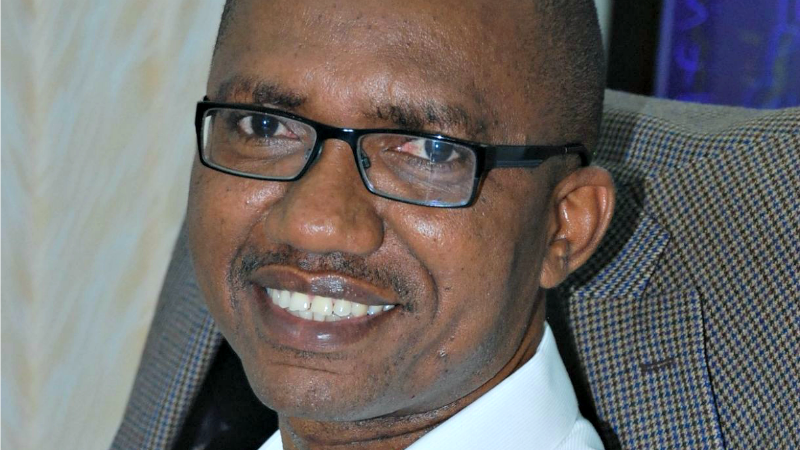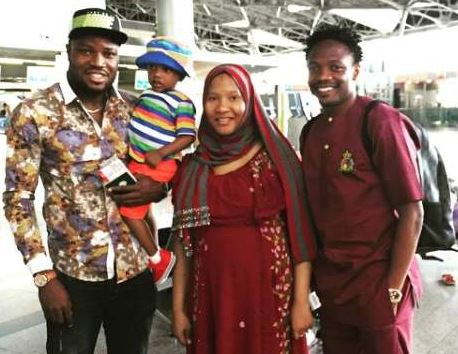By Azu Ishiekwene
There are many African proverbs that convey the importance and place of family bond in society. One of my mother’s favourites was, “Nwene nmadu bu uko ogbo.” The literal English translation is, “Your brother or sister is your covering or your cloth.”
South Africans have a profound expression of this bond. They call it “Ubuntu.” The full Zulu expression is, “Umuntu ngumuntu ngabantu,” meaning, “A person is a person through other people.”
The definition of “the family” is changing. A social demographic like “sex”, for example, has been gradually replaced in some parts of the world by the word, “orientation.” There are also bathroom wars over what label to use for those who are neither “male” nor “female.”
Many children today are growing up under different family settings than the generation before them, with increasing cases of working Mom and Dad, single parenthood, separation, divorce and permanent singlehood, not to mention the impact of new reproductive technologies and the onset of deferred marriages and pre-marital contracts.
Regardless of this flux, however, most might agree that the family is the smallest social unit, comprising a couple or one of two couples that may be legal but may or may not be biological parents.
In a paper entitled, “Changing Family Patterns And Family Life,” Kathleen Gerson and Stacy Torres wrote, “Almost everyone agrees that marriage and parenthood make a family, but significant numbers also consider unmarried couples without children a family, and disagreement over who should be allowed to marry underlie the heated political struggles over same-sex marriage.”
I must at this stage resist the temptation to go too far afield into the turbulent areas of same-sex marriage and whether or not a man marrying a man or a woman marrying a woman can be described as family.
The position of the law in Nigeria today is that it is illegal. Under the Same-Sex Marriage Prohibition Act 2013, same-sex marriage is punishable by up to 14 years imprisonment. Public advocacy or abetting of same-sex marriage also carries the same penalty.
Some would even argue that, legal or not, same-sex marriage is anathema to traditional African values, while others would respond that it is not the business of African traditional values – or values anywhere for that matter – to concern themselves with what happens behind closed doors between two consenting adults.
What traditional African ethos and values bind and sustain the family as a social institution? How are families connected to institutions outside the home? How can those connections help to build and reinforce outcomes in other social systems and institutions?
To reframe the question as the world marked the World Family Day on Monday: How can we use positive values from the African family to move from big men and women to big systems and strong institutions?
The family has evolved from the breadwinner-homemaker model, which a number of sociologists in the 20th century identified as the basis for domestic equilibrium and stability. In this setting, the man was supposed to be the sole provider of the family’s economic and security needs, while the woman looked after the children, apart from being there for the man’s pleasure
But shifts have occurred over the years. While the family continues to provide emotional support and socialisation for the child, for centuries now, schools have taken over the role of formal education and the factories have taken over the production of goods and services.
Colonialism, feminism, post-industralisation, and globalisation have taken their toll on traditional African families and values. It is, however, important to note that outside the thrall of individualism and the anomie that define many urban centres on the continent, swathes of families in rural areas where most of the population live are still rooted in collectivist customs and practices.
In other words, we are still largely rural and traditional societies.
This is in spite of Harry Mosco’s 1978 hit song, Country Boy, in which he told his “Mama” and “Papa” that he would never to go town (read village), because as he put it, the town had neither money nor food him. “I’m a country (read city) boy,” he crooned, “I don’t’ wanna go!”
In a number of African societies, including today’s Nigeria, accountability – or more precisely lack of it – is probably one of the biggest problems. How do we get persons in positions of authority – whether they are politicians, civil servants, clergy or student union leaders – to account for the commonwealth in their custody?
The typical African big man is made not necessarily through hard work, talent or any creative genius. He typically emerges through patronage and by exploiting weak systems and divisions among the poor and vulnerable.
He plays the ethnic or religious card when it is convenient, muscles through at other times, or just buys his way if he has to. Out of control and ungovernable – that is what it means to be a big man or woman.
How can we tame this beast?
Julius Nyeyere’s Ujamaa, Swahili for collectivisation, remains one of the most extensively documented attempts to build an African political system on traditional African values; a society where there is no big man or, to put it in Marxist language, a society governed by the ideal: “From each according to his ability to each according to his needs.”
Although Tanzania made great strides in education, infant mortality and a strong sense of national pride, Ujamaa soon suffered a major setback as a result of the crash in commodity prices, elite sabotage and, well, man just being man.
Traditional African family values looked out for the common good and frowned on unearned wealth and oppression. In some places, especially in the South Eastern Nigerian, for example, the age-grade system was not only used to encourage consensus building in decision making, it was also used as a vehicle for volunteering and a tool to hold members to account.
If the system has been weakened today, it’s largely the handiwork of colonialism, worsened by rogue politicians and a rogue state.
To build lasting systems, we need to return to the peer review system in many traditional African societies, and to popularise it in schools, faith centres, communities and work places.
It is a paradox also that oath taking – a common institutional ritual that is supposed to keep the takers honest – is observed mostly in the breach. Not a few social commentators have suggested that perhaps public officers would think twice before breaching public trust and looting the treasury if they were made to swear by their village gods. Those who advance this view insist that village gods have no respect for the big man or woman and they know it.
It has been argued that big men act with impunity because of the “inherent fear of the future.” That to build lasting systems and institutions we need to borrow the values of the traditional African family whose sense of “Ubuntu” or communalism acted as a social safety net of sorts. The expectation is that better safety nets would reduce social pressures on the rich few, and perhaps, blunt the appetite for aggrandizement.
But we cannot ignore the fact that honesty, hard work, contentment and genuine concern for one’s neighbour, all values of the traditional African family, are in short supply, leading to a rise in dysfunctional family systems.
Although statistics on divorce rate in Nigeria are unreliable, a 2016 report by The Economist, quoted the National Bureau of Statistics that only 0.2 per cent of men and 0.3 per cent of women are affected by divorce. Al-Jazeera reported five years ago that the North has the highest divorce rate in West Africa with one in three marriages failing within the first three years.
The muted figures grossly underestimate millions of unreported cases and millions more of marriages contracted through the traditional marriage system, where divorce and separation are undocumented.
The family is under attack from a plethora of problems ranging from social-media induced alienation to domestic violence and abuse, and from irresponsible parenting to growing financial stress.
These problems threaten the very foundations and viability of the home. To look to the family for values to help us disable the big man, revamp our systems and build strong institutions, we must repair the broken hedge.
We must take responsibility and recognise that what we do today, the choices we make, first as individuals and then as families and communities, have consequences and will shape the kind of institutions that we build.
This is a slightly modified version of the paper presented by Azu at the Family Values Delegates Conference in Lagos on Monday




